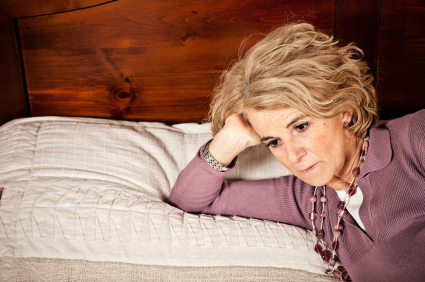Depression More Likely Among Perimenopausal Women with Bipolar Disorder
Researchers found that among women with bipolar disorder, those in the menopausal transition period were significantly more likely to be depressed than premenopausal women in the sample, and that the increased proclivity for depression continued in post-menopausal women as well. Wendy Marsh, Terrence Ketter, Sybil Crawford, Julia Johnson and Anthony Rothschild studied 521 women of reproductive age, 107 women in the menopausal transition period, and 145 post-menopausal women in a multi-site treatment enhancement program for bipolar disorder (STEP-BD).

The women of reproductive age ranged from 28-38 years old, and the women in the menopausal transition period averaged 42 years old and 365 days past their last menstrual period.
Women in the menopausal transition were less likely to experience a manic episode compared with reproductive aged women, and those who were post-menopausal had the least likelihood of experiencing a manic episode. These data are consistent with others in the literature that suggest that the menopausal transition may be associated with an increased proclivity to depressive episodes.
These data also raise the question of whether hormone replacement therapy in the late menopausal transition phase may be a useful adjunct for treatment-resistant depression.

